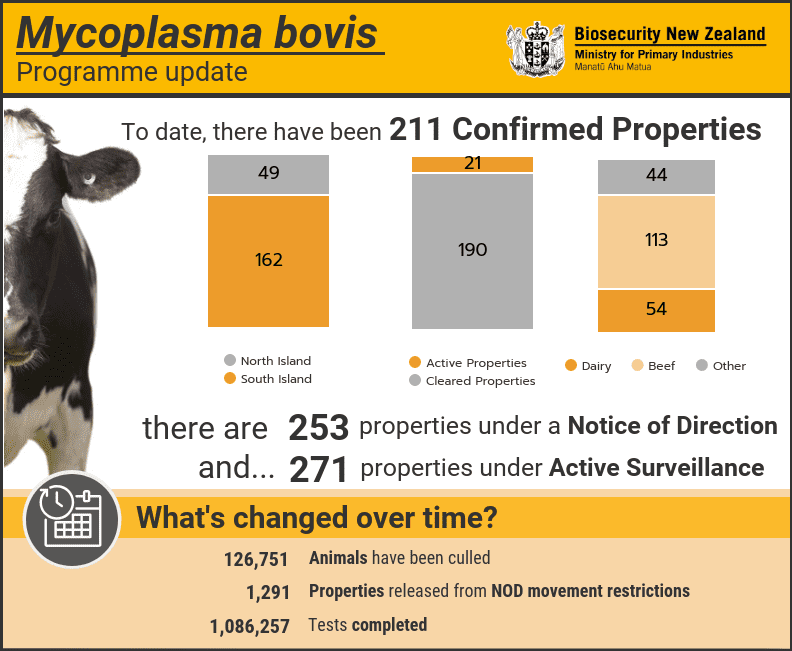Mycoplasma Bovis
Update (September 2019)
Mycoplasma Bovis is mostly spread through movement of animals and infected milk fed to calves; transmission via semen is a lower risk but bulls can also transmit it via nasal secretions. However, it is still wise to source bulls from as few properties as possible, and if bulls are leased, the fewer farms they have been on the better. Movements should be traceable and with all properties confirmed negative for M bovis. Tests are available for reassurance beyond asking the previous questions. PCR can be done on swabs, but a single negative result does not guarantee no infection.
Update (May 2018)
We now have a positive farm confirmed in the Cambridge area, and several Waikato farms are under Movement Restriction and testing after NAIT movement tracing. The government will be announcing the national policy on Monday 28/5/18.
Commercial tests are now available; PCR tests for bull sheath scrapes, and for milk. These tests can yield both false positive or false negative results (it is a very frustrating disease!). Please contact the clinic if you would like to discuss these options.
Mycoplasma is spread primarily via direct contact from cow to cow (even over the fence) as the bacteria are found on the nose, respiratory tract, mammary gland, vagina and prepuce and transmitted in secretions such as milk, tears and semen.
Biosecurity is nonetheless vitally important to prevent transmission between farms on boots, equipment etc.
Remember disinfection is a 2 step process – first scrub to remove all the organic material, then disinfect!
Both testing and culling are now ongoing as well as continued surveillance. It is important that we maintain vigilance.
Keep an eye out for the signs:
- Swollen joints and lameness in cows
- Cows still quite bright
- Mastitis that does not respond to antibiotics
- Abortion and birth of weak calves
- Arthritis in calves
- Pneumonia in calves
- Middle ear infection in calves leading to a head tilt, and conjunctivitis
Mycoplasma are bacteria that do not have cell walls, so many antibiotics do not work, and they are difficult to culture in samples. The disease is common worldwide, but no evidence of its presence was found in NZ in 2007 when 244 bulk milk vats were tested. There is no human health risk or threat to trade.
https://www.cambridgevets.co.nz/wp-content/uploads/2018/08/Biosecurity_WOF_A4_brochure.pdf
http://mpi.govt.nz/protection-and-response/responding/alerts/mycoplasma-bovis/

